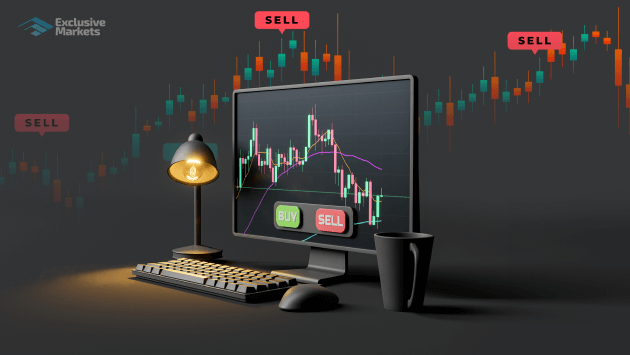
Trading Forex vs Stocks: Which Market is Right for You?
When it comes to trading, two of the most popular options available to investors are Forex and stocks. Each of these markets offers unique characteristics, advantages, and challenges. Before diving into trading, it is essential to understand the differences between these two asset classes, and trading forex vs stocks Trading PH can be an excellent resource for trading education and insights.
Understanding the Basics
The foreign exchange market (Forex) involves trading currencies, making it the largest financial market in the world. It operates 24 hours a day, five days a week, allowing traders to participate at any time. In contrast, stock trading involves buying and selling shares of publicly traded companies, with trading hours typically limited to the hours when the stock exchanges are open.
Liquidity
One of the most significant differences between Forex and stock trading is liquidity. The Forex market is known for its high liquidity, primarily due to the vast number of participants and the sheer volume of currency being traded daily. This high liquidity means that traders can enter and exit positions quickly without significantly affecting the market price.
On the other hand, the stock market can vary in liquidity depending on the specific stock being traded. Some stocks, particularly those of larger companies, tend to have high liquidity, whereas smaller, less-known stocks may see lower trading volumes, resulting in slippage or price manipulation.
Volatility
Volatility plays a crucial role in both Forex and stock trading. Forex markets can experience rapid price fluctuations due to global economic events, geopolitical tensions, and changes in interest rates. This volatility can present both risks and opportunities for traders, as rapid movements can lead to significant profits or losses.
In comparison, while stocks can also be volatile, their movements are often driven by company performance, earnings reports, and market sentiment. Traders who focus on high-volatility stocks can capitalize on large price swings, but they should also be aware of the risks involved.
Market Hours
One of the appealing features of Forex trading is the extended trading hours. The market operates 24 hours a day, five days a week, allowing traders to participate in the market at any time convenient for them. This flexibility is particularly advantageous for individuals with full-time jobs or other commitments.

In contrast, stock trading typically occurs during specific hours based on the stock exchange’s schedule, such as the New York Stock Exchange (NYSE) or NASDAQ. While after-hours trading is an option, it comes with limitations and additional risks, as participation can be much lower outside regular trading hours.
Leverage
Leverage is a key aspect of trading that allows traders to control larger positions with a smaller amount of capital. In the Forex market, brokers often offer high leverage ratios, sometimes up to 400:1 or more, which can amplify both gains and losses. This means that a small price movement can result in significant profit or loss, making it a double-edged sword.
In the stock market, leverage is typically more conservative, with most brokers offering a maximum leverage of 2:1 or 4:1 for day trading. This means that while leverage is still available, it is not as aggressive as what retailers may encounter in Forex, potentially leading to less risk from excessive margin calls.
Costs and Fees
Understanding costs and fees associated with trading is crucial for maximizing profitability. In Forex trading, costs primarily come from spreads—the difference between the bid and ask price of a currency pair. Many brokers offer tight spreads, which can help reduce trading costs. Additionally, some Forex brokers may charge commissions on trades, especially if they provide access to sophisticated trading platforms or research.
In stock trading, costs can include commissions per trade, which can add up significantly for frequent traders. Although many brokers now offer commission-free trading for U.S. stocks, there may still be fees associated with options trading or certain types of accounts. Moreover, traders must also consider other costs such as market data, margin interest, or specific order types.
Market Analysis
Both Forex and stock trading require a solid understanding of market analysis. Forex traders often utilize technical analysis based on price charts, patterns, and indicators, as well as fundamental analysis focused on economic data releases and geopolitical news. These aspects add layers of complexity to the Forex trading environment.
Stock traders, on the other hand, may focus more on company fundamentals, such as earnings, revenue growth, and market position, alongside technical analysis. While both markets require an understanding of analysis, the context and indicators used can differ significantly.
Choosing the Right Market for You
Deciding between Forex and stock trading ultimately depends on your personal goals, trading style, risk tolerance, and time commitment. If you prefer a market with high liquidity, extended trading hours, and the ability to leverage your capital, Forex may be the right choice for you. On the other hand, if you prefer a more fundamental approach based on company performance and the comfort of established markets, stock trading might be more suitable.
Making an Informed Decision
In conclusion, both Forex and stock trading provide unique opportunities and challenges. Understanding the key differences and characteristics of each market is essential in making an informed decision about where to invest your time and resources. Additionally, leveraging resources such as Trading PH can enhance your trading knowledge and help you navigate the complexities of both markets. Whichever path you choose, ensure you conduct thorough research and practice sound risk management to succeed in your trading endeavors.

